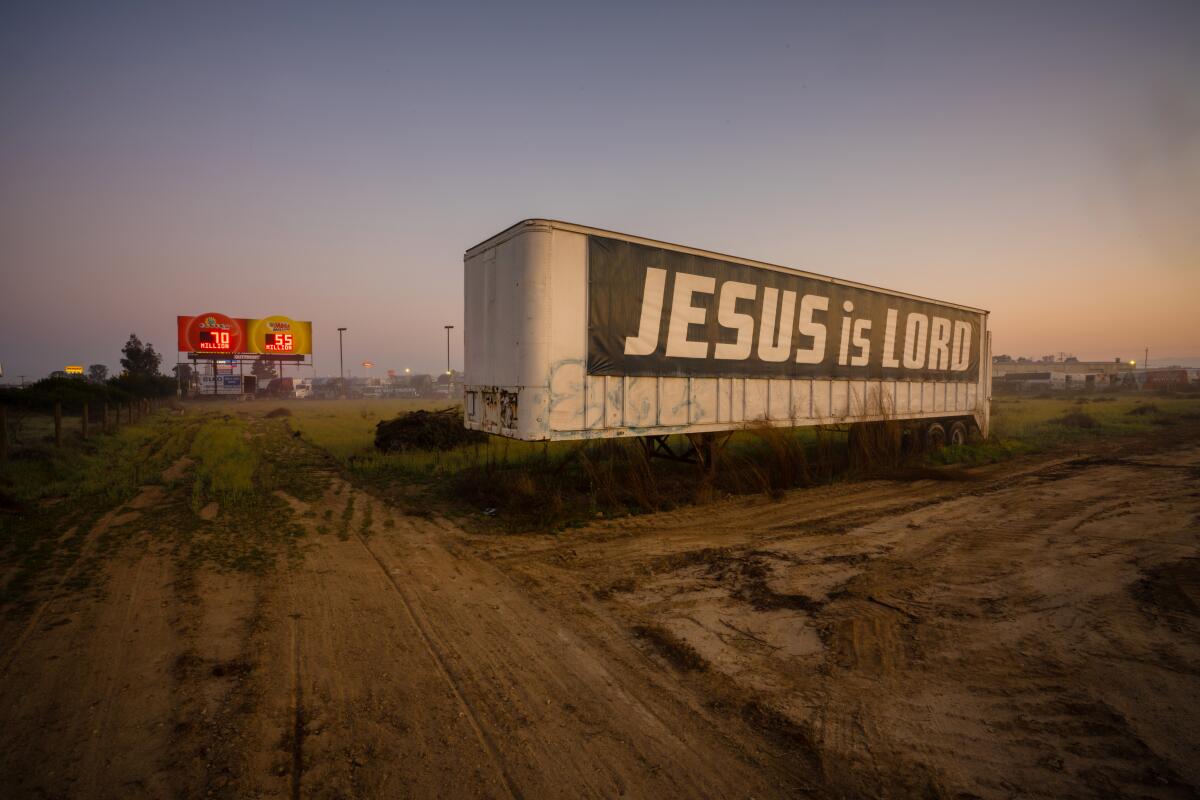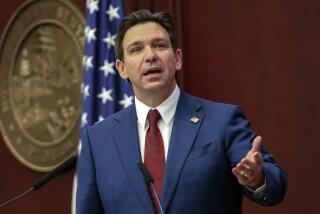Op-Ed: Religious freedom in America is protected for some more than others

Claims of “religious liberty” are being used to justify discrimination — and that is not good for religious freedom or American democracy.
The Supreme Court sidestepped the issue this week with its narrowly tailored 9-0 decision in Fulton vs. Philadelphia. Still, the justices held that Philadelphia’s enforcement of anti-discrimination policies — telling Catholic Social Services that the agency needed to be willing to certify same-sex couples as foster parents in order to renew their contract for foster care — violated the 1st Amendment.
While we are relieved that the court did not go further to make it impossible to enforce anti-discrimination laws when people or organizations claim a religious reason for their bias, we are very concerned that a religious agency receiving government funding is allowed to ignore laws designed to protect marginalized and minoritized individuals.
It is reminiscent of the 1960s and 1970s, when religious liberty claims were used to defend schools that had been established primarily to circumvent federal laws against racial segregation. These claims were denied, but if religion is a good enough reason to discriminate based on sexual orientation, then why not race? How about religious difference? In 2019, Miracle Hill Ministries in South Carolina got a waiver to participate in federally funded foster care even though it turns away Jews, Muslims and others — working only with Christians.
During the Trump administration, nine federal agencies proposed new rules legalizing discrimination under the guise of religious liberty. Among other things, those rules exempt government-funded faith-based agencies from laws that guarantee equal access to programs. They expand religious exemptions to laws against discrimination in hiring. They also support health professionals who refused to treat patients on religious grounds.
The Biden administration is working to unwind some of these rules, but the larger question remains: Why do some religious people and organizations continue to believe that faith offers them constitutional protection to discriminate?
As scholars dedicated to studying the role of religion in politics and public life, we are profoundly troubled that religious freedom is increasingly invoked and interpreted as a kind of diplomatic immunity from the rule of law.
The problem is deepened because religious freedom is protected for some more than others. Religious liberty was not honored when the Indigenous community tried to protect their sacred lands at Organ Pipe Cactus National Monument, Bears Ears or Standing Rock. It was not protected when the third iteration of the “Muslim ban” passed constitutional muster. It is not protected when religious pacifists seek to withhold the portion of their taxes that funds the military.
Why are questions of sexuality and procreation the dominant issues that get affirmed as matters of religious liberty? Our traditions have much more to say about affirming the value and dignity of all life, caring for the environment, pursuing peace, fostering an inclusive society, welcoming the stranger and eliminating poverty. Where are these issues on the religious liberty agenda?
There are, of course, legitimate questions regarding the best standard for decision-making when government policies bump up against religious practice or belief. The courts have considered whether a law is neutral among religions in its impact, whether there are secular exceptions to the law that would require religious ones as well, and whether the government should have to prove it has a compelling interest that might override free exercise.
But equality under the law is also a constitutionally protected right. In the last dissent she wrote before her death, Justice Ruth Bader Ginsburg warned that the court was breaking from its long-standing principles in allowing “the religious beliefs of some to overwhelm the rights and interests of others who do not share those beliefs,” even when they are causing harm.
The House has reintroduced a bill called the “Do No Harm Act” that is specifically designed to protect against using religious liberty as a shield for discrimination. We hope that it becomes law, but, in the meantime, it would be a good rule of thumb for religious organizations and individuals. Evocative of the principle of ahimsa in Jain, Buddhist and Hindu traditions, many religions in fact teach that we must avoid actions that might harm others.
Religious individuals and organizations have an obligation to balance what they believe with a plural understanding of the broader public good. It requires standing both inside and outside our traditions to examine their impact. We can best protect religious liberty by refusing to wield it as a weapon to hurt others.
Rachel S. Mikva is a professor in Jewish Studies at Chicago Theological Seminary and the author of “Dangerous Religious Ideas: The Deep Roots of Self-Critical Faith in Judaism, Christianity, and Islam.” Corey D. B. Walker is a professor of the humanities at Wake Forest University and editor of “African Americans and Religious Freedom: New Perspectives for Congregations and Communities.” Reza Aslan is professor of creative writing at UC Riverside and the author of numerous books about religion, including “God: A Human History.”
More to Read
A cure for the common opinion
Get thought-provoking perspectives with our weekly newsletter.
You may occasionally receive promotional content from the Los Angeles Times.










